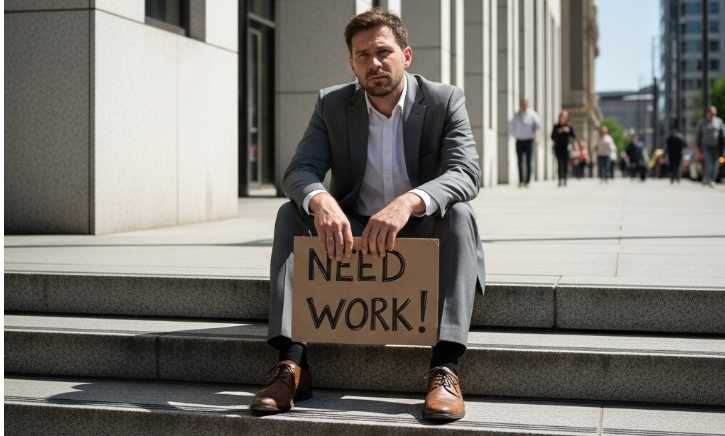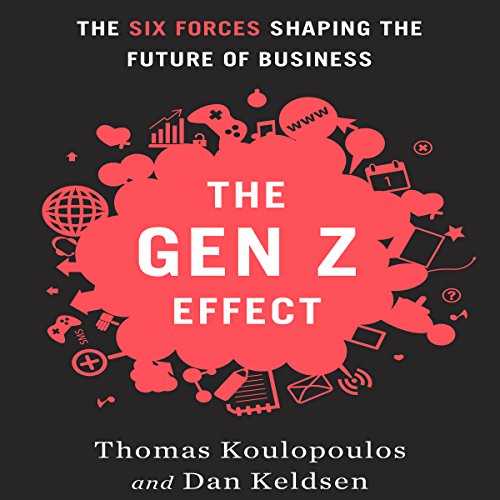Each month, I sit on a panel at the U.S. Air Force Academy with soldiers, sailors, and airmen preparing to transition into civilian life. These are capable, disciplined individuals entering the next chapter of their careers, and they often express one overwhelming concern—job security.
Around the room, flip-chart pages record the traits they want from their next role. And, month after month, “job security” consistently ranks near the top. It’s a theme that echoes across generations. My father, for instance, worked for the same employer for most of his adult life. For him, job security meant staying loyal to one company, climbing the corporate ladder, and retiring with a pension.
But that world has changed.
In today’s volatile labor market, the concept of “job security” has become more of an illusion than a reality. Layoffs, restructurings, mergers, AI-driven automation, and offshoring, as well as the rise of DOGE among government employees, have turned what used to be a safe harbor into shifting sand. One unexpected decision by your employer—often entirely unrelated to your performance—can cut off your sole source of income overnight.
Why Today’s Jobs Aren’t as Secure as They Seem
It may sound counterintuitive, but today’s traditional employment can carry more income risk than self-employment—especially in the form of a micro business. When you rely entirely on a single employer to pay your bills, you’re putting all your financial eggs in one very fragile basket.
Imagine you’re an employee at a big corporation. You could be doing stellar work, hitting all your targets—and still find yourself out of a job due to budget cuts, corporate buyouts, or shifts in company strategy. In this model, your paycheck depends entirely on someone else’s decisions.
Why Micro Businesses Offer Real Security
Contrast this with a micro business—say, a consultant with five clients or a service provider with twenty customers. When one client moves on or cuts back, the business might take a small hit, but the rest of the income stream remains intact. That resilience is built-in diversification.
In the investing world, this concept is called diversification—spreading your investments across different assets to reduce risk. No financial advisor would recommend putting your entire nest egg into a single stock, yet most people are perfectly comfortable relying on a single employer for 100% of their income.
Why not apply the same investment wisdom to how you earn money?
The Modern Entrepreneur: Spreading Risk Like an Investor
Being self-employed was once considered a risky endeavor. But in today’s economy, it’s arguably more secure. Often, it only requires a laptop and an internet connection. Micro business owners can:
- Serve multiple clients across industries
- Adjust pricing, services, or delivery based on market trends
- Operate with lower overhead
- Pivot quickly if one stream dries up
And unlike large businesses or salaried employees, micro business owners don’t have to wait for permission to make changes—they are the decision-makers.
More people are beginning to recognize this shift. The rise of the gig economy, freelancing, and side hustles reflects a growing movement toward income diversification. According to a report by MBO Partners, over 64.6 million Americans are now part of the independent workforce—a number that continues to grow year over year.
But What About the Perks of a Job?
Yes, jobs often come with health insurance, retirement benefits, and a (perceived) steady paycheck. But those benefits can vanish with a layoff. Many micro business owners solve this by creating their own benefits using platforms like Healthcare.gov and setting up Solo 401(k)s or SEP IRAs for retirement.
With just a bit of planning, self-employed individuals can often replicate the benefits once provided by employers—sometimes with more flexibility and better outcomes.
The Myth of the Safe Job
If you’ve grown up hearing that a “good job” equals safety, it’s time to challenge that assumption. The world has changed. Loyalty is no longer a guarantee of longevity. The pandemic, economic downturns, corporate reorganizations, and DOGE have shown us that even long-time employees are expendable in today.
A corporate or government job might feel safer—but that safety can be misleading.
Apply the Investor’s Mindset to Your Income
Think about how you manage your financial portfolio. Would you ever advise someone to put every dollar into one volatile asset? Of course not. So why take that same risk with your income?
Instead, consider this:
- What if you had three to five small income streams?
- What if one of them grew into a full-time business?
- What if you created a business that could eventually work without you?
That’s not risk—that’s resilience.
As I tell the transitioning military members I meet each month, real job security comes from being in control of your own economic engine, rather than being dependent on the goodwill of a corporate or government employer.
What is your current level of income risk—and what small steps could you take to reduce your dependence on a single source of income?












